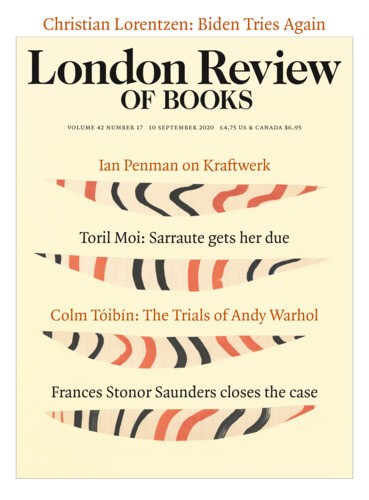Once upon a hill there grew a tree. Because it had been so long honed by the wind,
it appeared, like an apostle in a painting, to gesture beyond itself toward some greater glory,
in this case the landscape far below.
You could lean against the tree and watch the river become a firth, widening over miles
as it prepared to meet the sea. You could watch as it bore away not just the winter’s rain –
goodbye! goodbye! but whatever one needed to lose.
And that was plenty, but the tree seemed to insist upon something even further: beyond
the Braes of the Carse and wind turbines, beyond even the mountains: a gleam of – what?
Well. This could go either way. We might stay down here and argue that neither ever existed,
not the tree and certainly not the distant consolation. Or perhaps we’d accept the tree, a larch,
larch-trees being numbered among the objects of this Earth. But the intimation – no.
Given the tree, though, who can say? It might be there still, for all we know, an isolate
on the hill. And if not a tree, then a celandine, awakening into yellow. Or a depthless stone.
Or lark-song. Or a hare with its world eyes, listening.
Send Letters To:
The Editor
London Review of Books,
28 Little Russell Street
London, WC1A 2HN
letters@lrb.co.uk
Please include name, address, and a telephone number.

